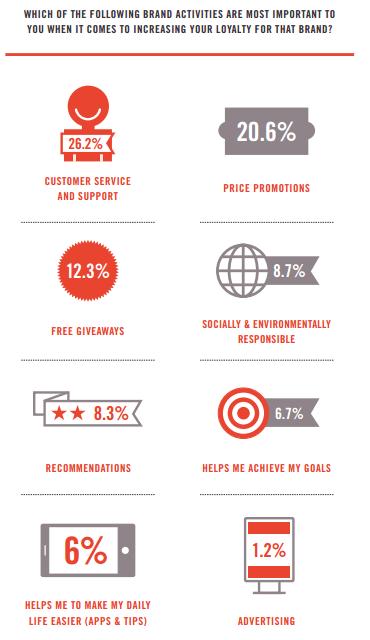How can we sell stuff to “young people”? That term is so broad it hurts my eyes… In marketing terms, “how can we market to Millennials”, also referred to as “foodies” or the “Me” generation? That’s undoubtedly a challenging question, which many marketers are left puzzled with answering.
Also Read: Social Media Predictions: What We Think 2016 Will Be Made Of
Before we move on to our stats, let’s have a quick look at what Millennials are. Born between the early 1980s and 2000s – for the most part, they’re currently in their late teens, or making their way through early adulthood. More importantly, they are the ones who will drive consumption in the near future, so if Millennials choose a brand now, they are likely to stay loyal for the rest of their life. And that, my fellow marketers, means BIG… money!
Referring to a study by Advertising Age, TheNewEconomy’s Rita Lobo wrote that, Millennials are expected to spend a whopping $10 trillion globally in their lifetime, making them the biggest spending generation in history. She defines them as “ideal consumers” adding that,
[quote] This generation is young, well informed, and they have money to spend because they are not yet bogged down by mortgages and children.[/quote]
On top of being open to new ideas and experiences, a big opportunity for marketers lies in the fact that they represent a large chunk of the population:
Almost one in every four American (24,7%) is a Millennial. In the UK, it is expected that 17 million people will belong to the “club” by 2019, so marketers should stay up to date about them.
So, here are the five facts, based on two studies from leading social media influencer marketing company Crowdtap and marketing agency thisisjnkling. I selected the 5 most important ones for you.
If you like our stories, there is an easy way to stay updated:
Follow @wersm
1. Millennials Spend 18 Hours A Day Consuming Media
When they’re not resting, they’re consuming content. Eighteen hours a day is an overwhelming number, so it’s no surprise we also call Millennials the “always on” Generation. Social media is the prefered tool to kill time – 71% say they use the whole lineup of social networks on a daily basis. 60% of them watch TV, 53% listen to the radio and even fewer user email, text, chat, texting and apps (49%)… This is something I find rather surprising.

2. User-Generated Content (UGC) Is Where Their Eyeballs Are
We’ve said it before... User-Generated Content appears more trustworthy, than plain advertising. And you know what? Millennials LOVE it! According to a study by Ipsos and Crowdtap, 30% of their daily media consumption goes to content produced by their peers. On average, they spend 5.4 hours on UGC each day!
Finally, UGC is also more memorable (50%) than other content types (37%) and more trusted (59%) than other content types (39%). Marketers should use this to their advantage
If you like our stories, there is an easy way to stay updated:
Follow @wersm

3. The Importance Of Experiences Vs. Commodities
53% of Millennials in the UK surveyed by thisisinkling would rather spend money on experiences rather than physical products that they own. And that is just the beginning of it… 62% said they will increase their budget allocated to experiences this year. So, marketers need to give a palpable, human touch to business. They should organise events so that customers can experience the brand first hand. As Eventbrite’s Head of Consumer Insights Eric Meyerson puts it:
[quote]We know from our research that engaging in experience helps Millennials from a sense of identity, differently from how other generation defined identity at their same age[/quote]
4. Business Ethics And Values
No, Millennials are not (only) hooked on selfie sticks, watching the Kardashians, or whatever other weird/gruesome/awkward trend rules the Internet at any given time. As educated consumers, 70% young shoppers make sure that the ethics and values of the company they buy from, are in line with theirs. In other words, siding with a cause, could very well make the difference between two companies with a comparable price level and similar services. Whenever they can, Millennials integrate ethical buying to their purchase process.
If you like our stories, there is an easy way to stay updated:
Follow @wersm
5. Loyalty Comes At A Price
Getting Millennials’ loyalty, should be a key objective for brands. However, loyalty comes at a price, and that price is outstanding customer service. The study found a disparity between gender: Males would rather be loyal to a company that makes their life easier via apps, how-to videos and tutorials. Females tip the balance in favour of customer support.
A difference also lies between younger (16-24 years) and older (24-35 year) Millennials. Younger are more likely to stay loyal to companies who give away freebies and discounts, whereas older are more likely to be more concerned about how environmentally-friendly the company is.

If you want more insight on the two studies, head on down to here and here and make your own list of most important fact about Millennials. Do you market to Millennials? Please share your achievements, challenges and lessons in the comments!
